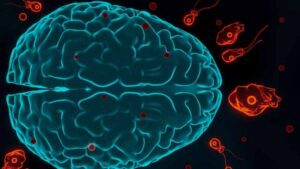
(stock photo)
An estimated 81,000 people in the US are diagnosed with kidney cancer each year. Despite the disease having a good prognosis if detected early, many people dismiss initial symptoms, leading to late-stage diagnoses.
Hazel Jackson, a healthcare professional nurse at Kidney Cancer UK, said explaining potential symptoms can be challenging as they vary between individuals and can be subtle, easily mistaken for less serious conditions.
Key symptoms include persistent lower back pain, blood in urine, which can range from light pink to red or even a “cola-like color”, unexplained weight loss, constant fatigue, and persistent night sweats.
These symptoms are not exclusive to kidney cancer and can indicate other types of cancer or serious health conditions. Nurse Hazel has issued a stern warning about the often undetected threat of kidney cancer, highlighting that it can sneak up unsuspectingly, often only caught during tests for other ailments or emergency visits, reports the Mirror.
She emphasized the extreme importance of recognizing key symptoms – pointing out the harsh reality that “In many cases, kidney cancer is only discovered through tests for unrelated conditions or a visit to AandE. It is important to note you may not experience all the key symptoms and may, in fact, only have 1 or 2.”
She emphasizes the importance of not dismissing these symptoms, as they could be early indicators of a serious health condition: “While these signs can be signs of other conditions, it’s important to link them together and contact your GP promptly if you do experience them. Early detection can make a significant difference in the treatment and outcome of any cancer diagnosis.”
Kidney Cancer UK is also sounding the alarm, especially for certain groups who are at greater risk, including older men – they are at twice the risk compared to women – and thus should be extra cautious. Lifestyle choices such as being overweight, smoking, and a diet high on red and processed meats significantly increase the risk, whereas consuming a lot of fruits, vegetables, and fibres might help protect against the disease.
Seemingly unrelated issues like a personal or family history of Birt-Hogg-Dubé syndrome, tuberous sclerosis, or hereditary clear cell and papillary renal cell carcinoma also heighten kidney cancer susceptibility.


